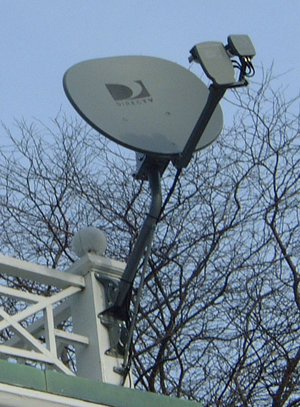
Connexion Technologies Files Bankruptcy Amidst Loss of DirectTV Contracts
Connexion Technologies, a real estate and telecommunications company out of North Carolina, filed for chapter 11 bankruptcy April 26, 2012, with the intention to sell itself after DirecTV Group Inc. (DTV) terminated its contracts with the Company, pushing the already cash-depleted Company over the edge. Connexion filed for bankruptcy along with 11 subsidiaries, including its main service providers, Broadstar LLC and Amenity Broadband LLC.
Connexion operates in 48 states and has more than 100,000 video customers. In its voluntary petition, the Company listed
between $100 million and $500 million in debts and fewer than $500,000 worth of assets. Connexion formerly generated $69 million in revenues and employed 570 people.
On the first day, the Company asked the Delaware bankruptcy court to approve $4 million in DIP financing from UniCredit Bank to assist in restructuring expenses during its chapter 11 case. The Company stated, from day one, that it does not expect unsecured creditors to receive any payout.
Connexion named several issues that lead to its financial crisis in February 2012. First, Connexion’s main business, purchasing telecommunications rights on properties like apartment complexes, improving the service and then leasing the rights to companies like DirecTV, was extremely capital-intensive.
Second, Connexion generally operated with low cash balances and relied upon its primary lender, Reedy Creek Investments LLC, to provide additional capital as needed.
Third, despite being affected by the recession, Connexion continued its expansion in 2009 and 2010, and maintained high fixed costs. This growth made it difficult for the Company to manage the business, considering the Company did not have enough profitable projects to generate sufficient cash to self-finance.
Fourth, and most important, although Connexion expected most of its growth in 2012 and 2013 to come from its DirecTV contracts, in February 2012, DirecTV unilaterally terminated multiple contracts with Connexion’s subsidiaries, resulting in a dramatic negative impact on Connexion’s cash flow.
To add to the misery, the Company’s lenders cut off access to further financing. The Company subsequently defaulted on its loan and further was unable to pay vendors.
This bankruptcy appears to be a case where things spiral out of control. While telecommunications companies generally make poor candidates for reorganizations, perhaps Connexion’s real estate assets and technology assets provide hope for a sale of the Company that would result in sufficient proceeds to provide returns to its stakeholders. It has happened before–in the wake of the 2000 technology bubble.






